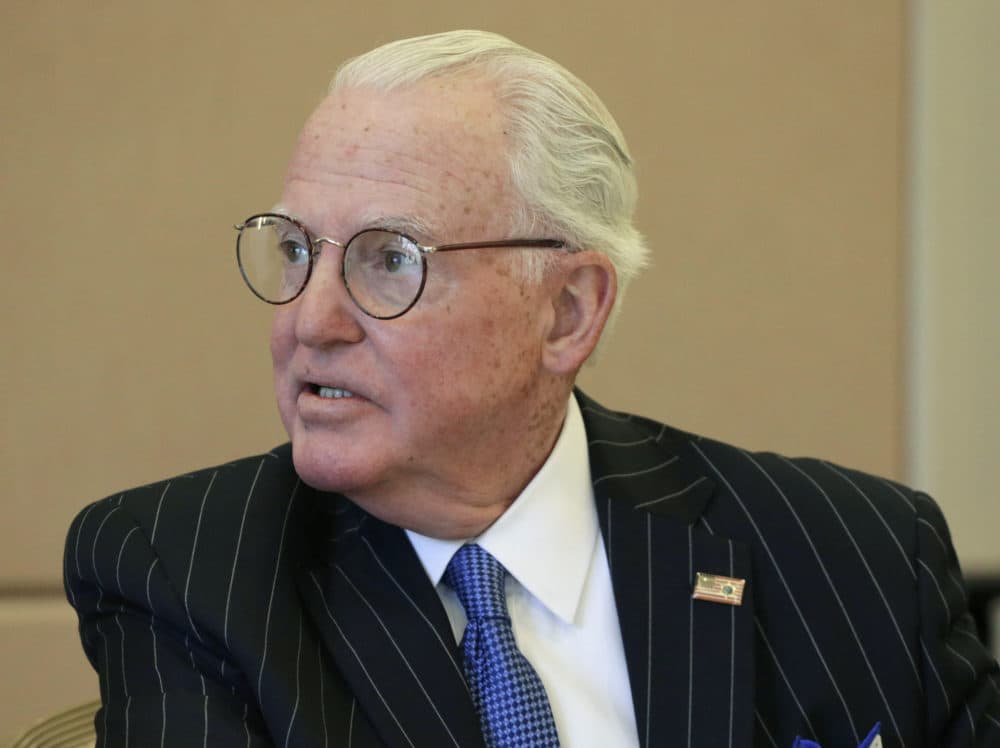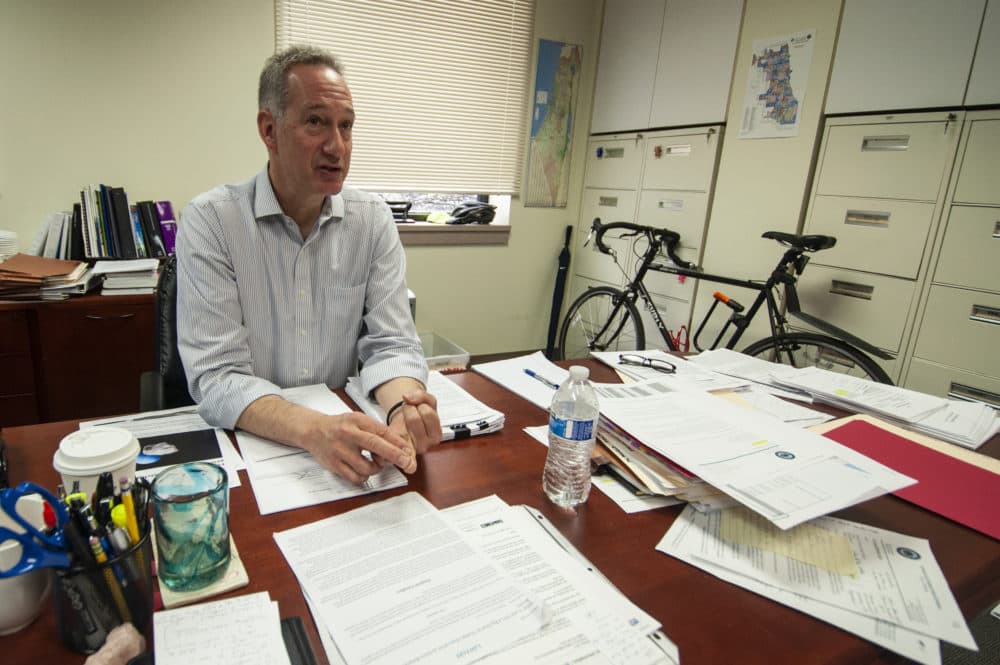Advertisement
How Chicago Politics Produced A Deeply Entrenched Culture Of Corruption

It turns out a federal extortion case wasn't enough to unseat Chicago's longest-serving alderman.
Ed Burke, the dean of Chicago's City Council, was re-elected Tuesday to his 13th term in office, just weeks after FBI agents raided his offices and filed a criminal complaint charging him with attempted extortion.
Burke told reporters in January he has "done nothing wrong" and will cooperate with the investigation.
It's hardly the first time scandal has rocked Chicago government. But after 50 years in office, Burke has come to symbolize for some just how entrenched Chicago is in a culture of corruption. And reformers hope to turn the renewed attention into a moment for change.
Mayoral candidates in this week's election tried to distance themselves from Burke. Attorney Lori Lightfoot — who got the most votes Tuesday and will face Cook County Board President Toni Preckwinkle in a runoff election on April 2 — cast herself as an outsider who would clean up City Hall.
"They're all tied to the same broken Chicago machine," Lightfoot says in a campaign ad, referring to the other candidates. "Except me."
Joe Ferguson, the city's inspector general, hopes the focus on corruption during this campaign is a sign that things will change.
"Chicago [is] at one of those paradigm-shifting moments. And its confluence with an election at a point in time that the city still has to grapple with significant fiscal issues because of a pension crisis both locally and at the state level, means that this corruption moment is one that actually could matter," Ferguson says. "If the shift doesn't come as a result of the election, I'm not sure what's ever going to make it change."

David Greising, president and CEO of the Better Government Association, a local watchdog group, says it's not just corrupt individuals that are the problem. Aspects of how city government is structured also allow corruption to fester.
Many aldermen like Burke have lucrative side businesses that create potential conflicts of interest with their duties as a public servant. And then there's something called aldermanic privilege.
"Aldermanic privilege is a convention of the City Council. It's not written into the ordinances or anything," Greising says. "It basically says that the Aldermen of any of the 50 wards in Chicago have an unchallenged right to veto anything that might happen in the ward."
Burke's case is a perfect example of how the system can be abused, critics say. The criminal complaint against Burke alleges he tried to withhold permits from the owner of a Burger King in his ward until the restaurateurs promised to hire Burke's law firm.
Advertisement
"Imagine that multiplied by thousands of times, anytime anybody needs a construction permit anywhere in the city, they need to go to the alderman on bended knee and get the alderman's approval," Greising says.
Some Chicagoans see corruption as a necessary evil, Greising says. But if you're from out of town, like the Houston investors in Burke's case, you don't know how business is done in Chicago.
"They didn't know all the unwritten rules of how you get things done, and so … they kept saying, 'Well, why should we have to hire this guy's law firm in order to just to get a permit on our restaurant?' " Greising says. "So you saw an outsider being shocked by the way this happens, whereas people who are used to this just say, 'Well that's the price of doing business.' "
There are real consequences to corruption. Ferguson says you can draw a straight line from the culture of corruption in Chicago and Illinois state politics to some of the city's most pressing issues.
"It's unquestionably holding back the state," Ferguson says. "It is a huge inhibiting factor to the development of business, to people coming to the community, to people building businesses in the community that expand the tax base, that expand opportunity, that's necessary in order to sort of cut into those forces that end up resulting in the cycle of violence and the continuation of the cycle of segregation."
Ferguson says there's another thing that helps perpetuate corruption: the public's morbid fascination with it.
"Culturally, Chicagoans actually I think are in love with their corruption narrative," he says. "Sometimes it's good for us at the local level. It means that we can get our extra garbage picked up when we're tossing our furniture in the alley and other times it means it's costing us more."
For Greising, Chicago's reputation for corruption is nothing to be proud of.
"There is a perverse sense of civic pride in this terrible reputation we have," he says. "I don't share in that pride. I'm disgusted by it. I want to see it change. I think there are a lot of people who feel that way, and seeing Ed Burke, the most powerful alderman in City Council, go down is just a reminder of how serious the problems are that we're dealing with."
Statistics from the Department of Justice show more than 1,700 people were convicted of public corruption in the Northern District of Illinois between 1976 and 2017. Political scientists at the University of Illinois Chicago recently ranked Chicago the most corrupt city in the country and Illinois the third most corrupt state.
Still Burke, who faces up to 20 years in prison if convicted of extortion, won his re-election bid with 53 percent of the vote.
He called it "a great day."
This segment aired on February 28, 2019.

